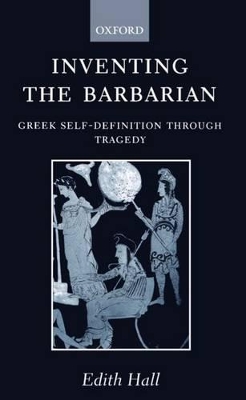Incest, polygamy, murder, sacrilege, impalement, castration, female power, and despotism: these are some of the images by which the Greek tragedians defined the non-Greek, `barbarian' world. This book explains for the first time the reasons behind their singular fascination with barbarians. It sets the plays against the historical background of the Panhellenic wars against Persia and the establishment of an Athenian empire based on democracy and slavery.
Contemporary anthropology and political philosophy is discussed, revealing how the poets conceptualized the barbarian as the negative embodiment of Athenian civic ideals. By comparing the treatment of foreigners in Homer and tragedy, it shows that the new dimension which the idea of the barbarian had brought
to the tragic theatre radically affected the past, and enriched the tragedians' repertoire of aural and visual effects. The invented barbarian of the tragic stage was a powerful cultural expression of Greek xenophobia and chauvinism, but, paradoxically, produced an outburst of creative energy and literary innovation.
The D.Phil. dissertation out of which this book developed won the Hellenic Foundation's prize for the best doctoral thesis in ancient Greek studies in the UK and Republic of Ireland (1988).
- ISBN10 0198147805
- ISBN13 9780198147800
- Publish Date 11 July 1991 (first published December 1989)
- Publish Status Active
- Publish Country GB
- Publisher Oxford University Press
- Imprint Clarendon Press
- Format Paperback
- Pages 294
- Language English
